Much of note was accomplished at the Wayne State University School of Medicine in 2024, from the announcement of a nearly $10 million grant to help overcome barriers to genetic testing for Black Americans at risk for cancer, to a basic science department celebrating a half century of improving medicine, and more. Let’s look back at some of our top Warrior Medicine stories in 2024.
Taskforce works to end racialized differences in medical education and practice
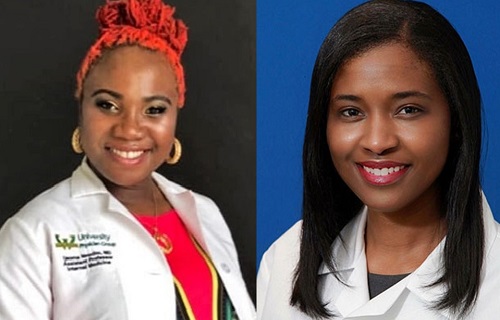
In January, we announced that the School of Medicine’s End Race-Based Medicine Taskforce was working to dispel and extinguish the misguided belief that individual races are biologically distinct groups determined by genes, and terminate medical practices and research that adhere to that concept. Co-created by Ijeoma Nnodim Opara, M.D., associate professor of Internal Medicine and Pediatrics, and Latonya Riddle-Jones, M.D., M.P.H., associate professor of Internal Medicine and Pediatrics, the taskforce includes representation from institutional leadership, students, residents, faculty, and community members and leaders.
The group has three primary goals to accomplish within its two-year mission, including discontinuing and “de-adopting” race-based medicine, including “race correction” in practice, teaching and research; leading the adoption and institutionalization of racism-conscious medicine in practice, education, policy and research, and provide support for clinicians and health care workers; and organizing stakeholder community roundtables and symposia on ending race-based medicine, the most recent of which was held in December.
Detroit research team to develop novel strategies to identify genetic contributions to cancer risk and overcome barriers to genetic testing for African Americans
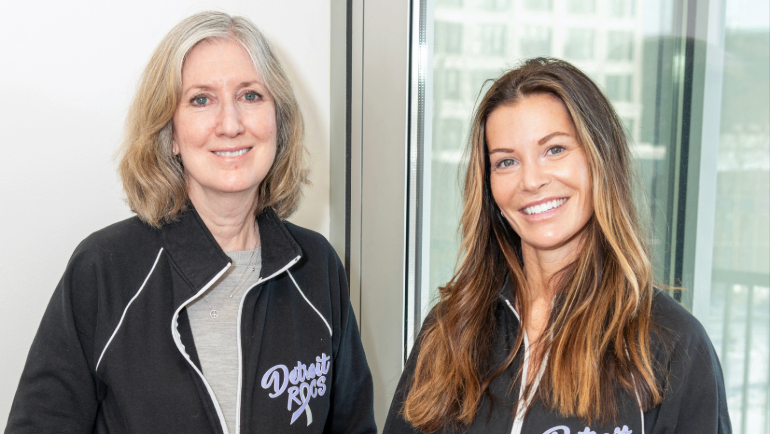
A team of researchers from Wayne State University and the Barbara Ann Karmanos Cancer Institute received a five-year, $9.6 million grant in February from the National Cancer Institute of the National Institutes of Health for the study “Genetic Variation in Cancer Risk and Outcomes in African Americans.” The Program Project Grant includes three large studies. The team, led by Ann Schwartz, Ph.D., M.P.H., professor and associate chair of Oncology, and Jennifer Beebe-Dimmer, Ph.D., professor of oncology at WSU and leader of the Population Studies and Disparities Research Program at the Barbara Ann Karmanos Cancer Institute, is working to improve the identification and clinical management of hereditary and multiple primary cancers in Black Americans, a population underrepresented in genetic research.
"We have assembled one of the largest populations of African American cancer survivors to date in a study called Detroit Research on Cancer Survivors – or ROCS – to now study genetic susceptibility and genetic testing in this population,” Dr. Schwartz said. “Our overall goal for this new project is to improve the identification and clinical management of hereditary and multiple primary cancers in African Americans.”
WSU scientists develop a simple blood test to quickly diagnose sarcoidosis
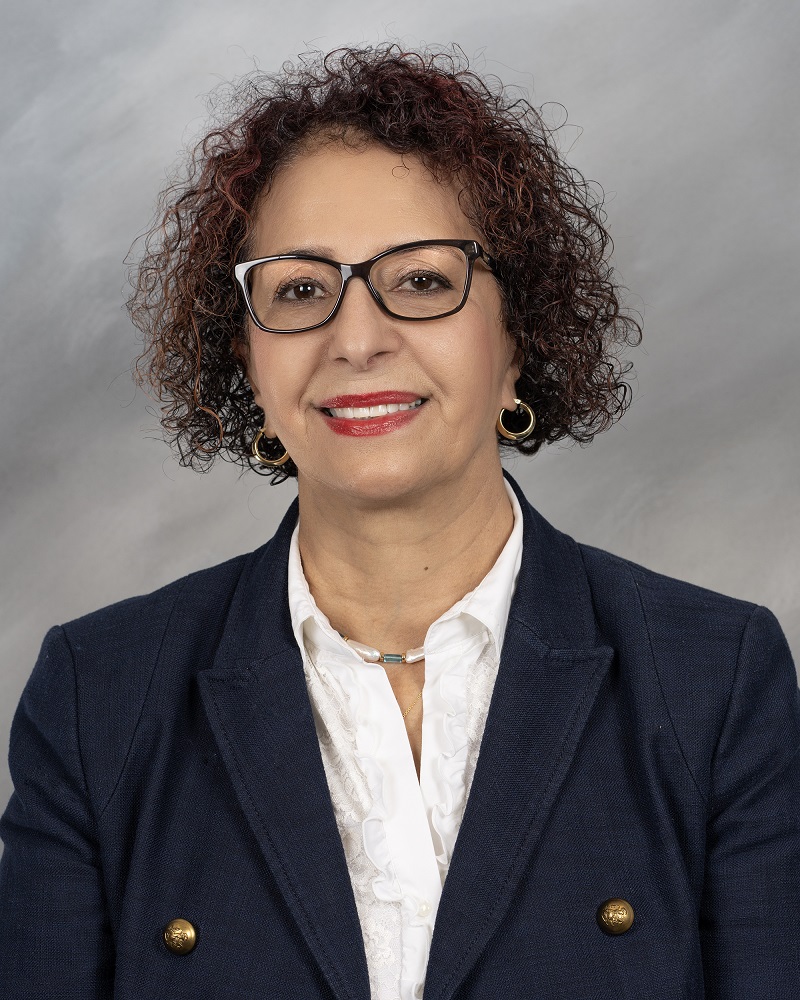
Announced in late February, a research project led by Lobelia Samavati, M.D., professor of Internal Medicine and Molecular Medicine and Genetics at the School of Medicine, and supported by the National Institutes of Health, developed a tool to rapidly and inexpensively diagnose sarcoidosis, a chronic inflammatory disease marked by the growth of tiny lumps called granulomas in the lungs and other organs. The tool, which uses a simple blood test, could allow for selective use of more invasive diagnostic tests often used to identify the disease. Though the exact cause of sarcoidosis is unknown, researchers suspect it is an immune disorder triggered by a group of specific antigens, which are generally foreign substances that incite an immune response in the body. In the United States, an estimated eight to 11 people per 100,000 are affected by sarcoidosis each year.
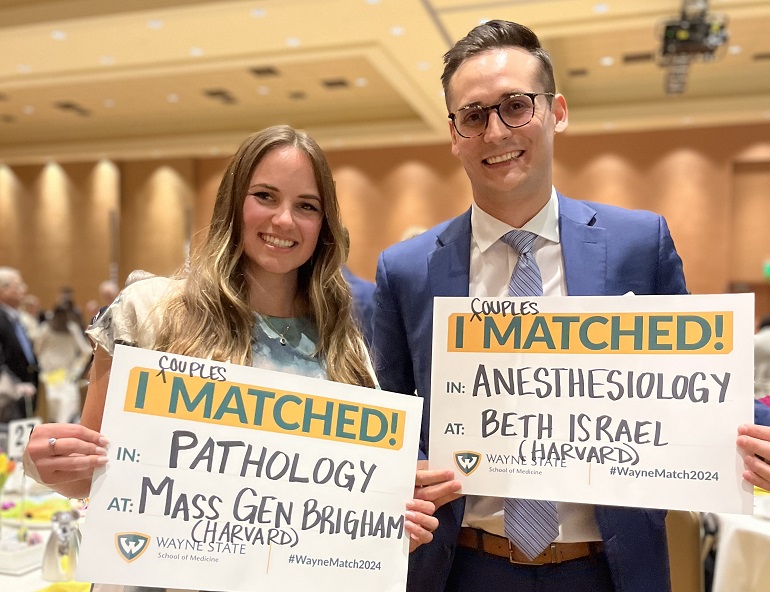
School of Medicine celebrates successful residency placements for seniors at Match Day 2024
Our 256 senior medical students and their families and friends, along with faculty and staff, gathered March 15 to celebrate their accomplishments at the traditional Match Day event and celebration. At 98%, the match rate for the School of Medicine medical students who participated in this year’s match was nearly 5% higher than the national average of 93.5%. Notably, while the number of positions filled by U.S. senior medical students has decreased from 53.1% in 2021 to 49% in 2024, Wayne State seniors have managed to maintain a consistent Match rate. In fact, the eight-year Match rate average for the WSU School of Medicine is 98%.
“This competition is becoming harder and harder every year,” said WSU School of Medicine Dean Wael Sakr, M.D. “Our graduating classes, year after year, have become some of the best clinically-trained and sought-after physicians around.”
Department of Pharmacology celebrates 50 years of improving medicine
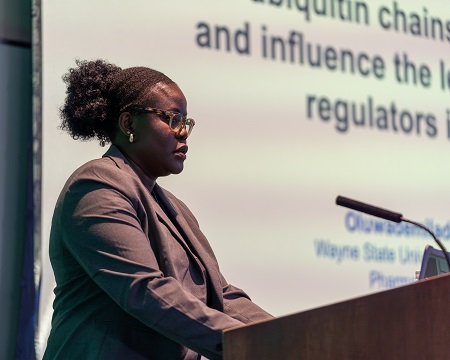
The Wayne State University School of Medicine’s Department of Pharmacology celebrated five decades of improving medicine, determining the underlying human structure to do so, and training generations of pharmacology experts with a daylong 50th anniversary celebration July 26.
“You have much to celebrate today, including 50 years of excellence,” Wayne State University President Kimberly Andrews Espy said during the celebration’s opening in the Margherio Family Conference Center. “Your work is the reflective bedrock of inclusive excellence, an example of the second pillar of our Prosperity Agenda of empowering the health of our communities, and you are developing the next generations of scientists who will continue to stretch the boundaries of medicine.”
School of Medicine launches new Wayne Trained education program for Warrior M.D.s
Also in July, a new coaching-based medical education initiative at the School of Medicine a year in the making launched with the Warrior M.D. Class of 2028.
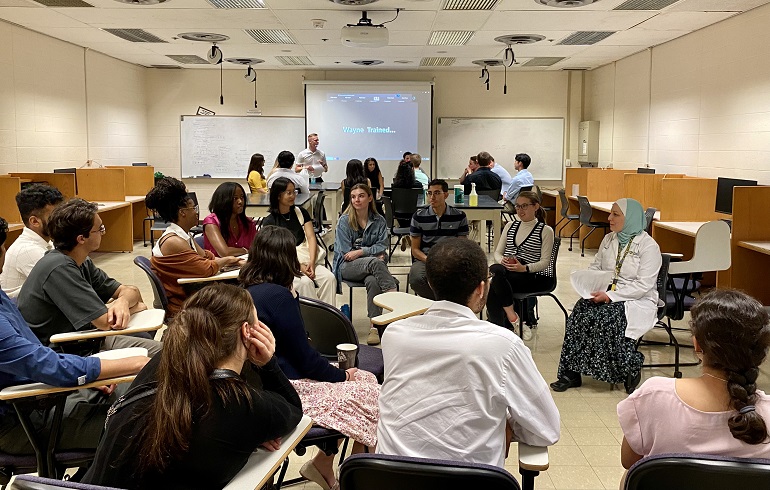
Wayne Trained is based on the Master Adaptive Learner framework, designed by the American Medical Association to assist physicians in becoming master adaptive learners—expert, self-directed, self-regulated and lifelong workplace learners. The novel program will transform the school’s current M.D. student support model into a comprehensive and uniform experience for optimal learning, personal growth and professional development.
The initiative is delivered in coordination with the School of Medicine’s eight color-coded Warrior M.D. Houses, which support and encourage networking, coaching, professional identity formation and empowerment. Phase Two of Wayne Trained is expected to launch this July.
WSU plays pivotal role in Detroit achieving HEARTSafe Community designation from Citizen CPR Foundation
The City of Detroit announced in late summer that it was the largest municipality to earn the HEARTSafe Community designation from Citizen CPR Foundation, an achievement in which Wayne State University and the Wayne Mobile Health Unit played an exceptionally pivotal role.
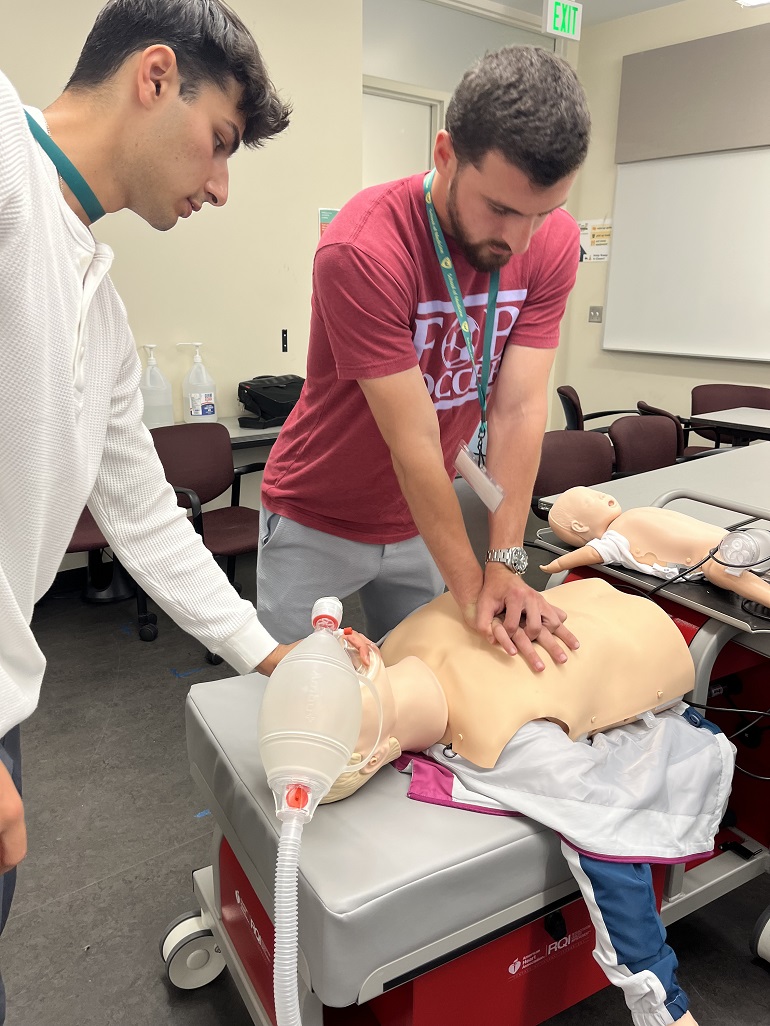
WSU Professor of Emergency Medicine Robert Dunne, M.D., is medical director of the Detroit Fire Department, which worked to pursue the HEARTSafe Community designation to improve survival rates of patients who suffer cardiac arrest citywide.
Student organization First Aid First is one of several organizations that were part of the overall Wayne State team. “Detroit being designated as HEARTSafe is a huge step in the right direction for the community. Not only increasing awareness for medical emergencies, but empowering community members to take action in a safe and effective way is important for decreasing mortality and fostering a sense of safety in our beloved community,” said third-year medical student and First Aid First past Co-President Katie Clark.
WSU-led health care collaborative launches network to promote healthier pregnancies in Michigan
As Michigan faces alarming maternal and infant mortality rates, a health care collaborative led by Wayne State University’s Office of Women’s Health formally launched the SOS MATERNITY Network in October, seeking to end preventable causes of death in mothers and children. The State of Michigan has allocated $11 million to fund the first-of-its-kind network, which includes 14 leading maternal-fetal medicine universities and health care systems from across the state.
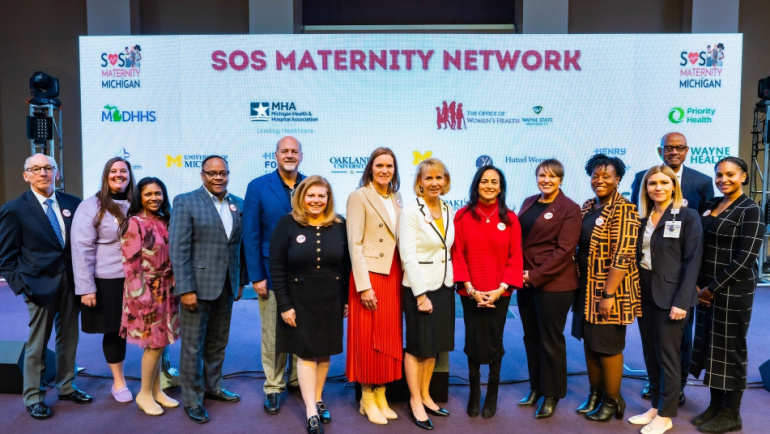
“The SOS MATERNITY Network has created a statewide network of Michigan’s finest universities and health care systems to declare war on our terrible rates of maternal and infant mortality,” said Professor of Obstetrics and Gynecology and Maternal-Fetal Medicine Sonia Hassan, M.D., associate vice president and founder of WSU’s Office of Women’s Health and leader of SOS MATERNITY. “Through this initiative, we seek to standardize best practices across Michigan physicians, increase access of pregnant moms to prenatal care and create systems of support for pregnant moms to have the healthiest pregnancy possible.”
To read more of our stories from 2024, visit https://today.wayne.edu/medicine